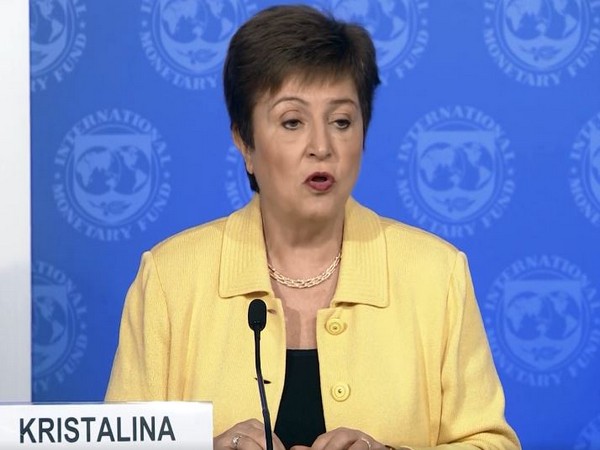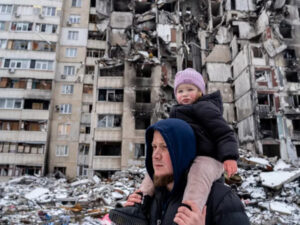
Washington [US], December 7 (ANI/Xinhua): Kristalina Georgieva, managing director of the International Monetary Fund (IMF), on Monday called on global cooperation to control the COVID-19 pandemic and support the economic recovery as the new Omicron variant has spread to over 40 countries around the world.
“The global economy has continued to recover, but the recovery faces many risks, including the uncertain path of the pandemic amid the arrival of new variants, and the outlook on inflation,” Georgieva said in a statement at the conclusion of the sixth “1+6” Roundtable convened virtually by the Chinese authorities.
“To address these challenges, urgent policy action is needed to control the pandemic, limit scarring, and transform the global economy,” Georgieva said, stressing four areas for global cooperation.
First, urgent action is needed to reach the IMF‘s pandemic proposal to vaccinate 40 percent in each country by the end of this year and 70 percent by mid-2022.
Second, countries need to cooperate to reduce trade tensions and strengthen the multilateral trading system, which is a key engine for growth and jobs.
Third, more ambition is needed to accelerate the transition to net-zero carbon emissions and to support climate adaption efforts, tapping all policy levers available.
Finally, many developing economies will need the global community’s support in their recovery, as they face shrinking fiscal space and rising debt burdens. (ANI/Xinhua)
Omicron likely to reinforce IMF downgrade of global growth forecasts – Managing Director

Washington [US], December 4 (ANI/Sputnik): The coronavirus Omicron variant is likely to reinforce a downgrade of the International Monetary Fund‘s (IMF) outlook on the global economy, IMF Managing Director Kristalina Georgieva said on Friday.
“Let’s be very frank: A new variant that may spread very rapidly can dent confidence and in that sense, we are likely to see some downgrades of our October projections for global growth,” Georgieva said at a live-streamed discussion on the global economy.
Georgieva said that even before the emergence of the Omicron variant, the IMF had already been concerned about a loss in the momentum of global growth due to the negative impacts of the Delta variant.
“The Delta variant proved to be a disruption that caused some additional delays in production” of goods in the United States and China, the leading engines for world growth, she said.
The IMF projected in October that advanced economies would regain in 2022 their pre-pandemic aggregate output, and exceed those by 0.9% by 2024.
It said output for emerging market and developing economies, excluding China, was expected to remain 5.5% below the pre-pandemic forecast in 2024. (ANI/Sputnik)


















